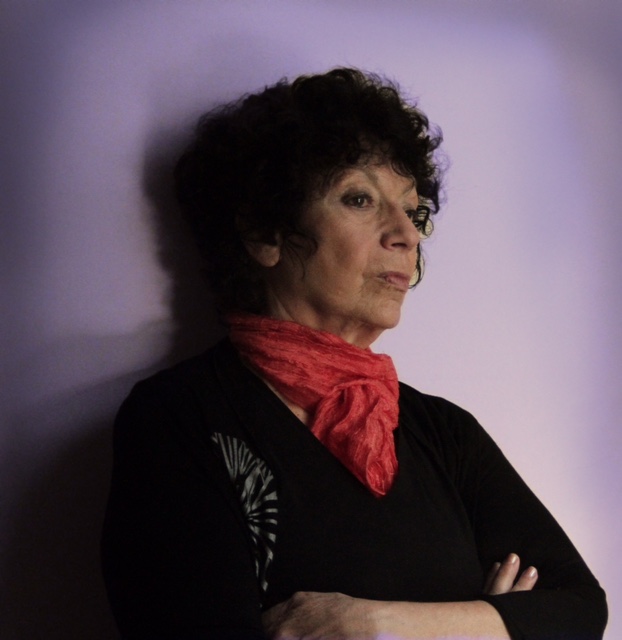ABOUT THE AUTHOR
LUISA VALENZUELA (Buenos Aires, 1938) – is an author of a number of essays, novels, stories, short stories and one of the major contemporary Argentinean writers. Born into an artistic family (her mother Luisa Mercedes Levinson was also a writer), Venezuela was surrounded by the Argentinean literary greats from an early age; her home was a place where many famous writers gathered, including Borges, Bioy Casares and Ernesto Sabato, among others.
She started working as a journalist and writing when she was very young. She travelled a lot, and lived in France, Spain, Mexico and the USA. She spent ten years living in New York (1979-1989), where she fled from the military regime in her homeland. That is where she wrote ,,Novela negra con argentines” (Black Novel (with Argentines), 1990). The works of this winner of numerous national and international awards has been translated into a number of languages and today she lives, works and relentlessly writes in Buenos Aires. Sometimes classified as a representative of the Latin American post-Boom, characterised by a more visible presence of female authors among whom Isabel Allende is one of the most famous, Velenzuela renounced the sentimental novel and magic realism typical of many writers of that generation.
Valenzuela writes political literature in the widest sense of the word, and her auto-poetical essays mainly revolve around the concepts of female letters and body writing. Among the Latin American literary greats her style is very close to Julio Cortázar’s: her prose is humorous, playful, experimental, and simultaneously fun and very critical of the social and political reality.
Major works include: Aquí pasan cosas raras (Strange Things Happen Here, 1975, stories), Como en la Guerra (As in War, 1977, novel), Cambio de armas (Other Weapons, 1982, stories), Black Novel (with Argentines)(1990, novel), Simetrías (Symmetries, 1993, stories), La Travesía (The Journey, 2001, novel), Peligrosas Palabras (Dangerous Words, 2002, essays), El Mañana (Tomorrow, 2010, novel), La máscara sarda, el profundo secreto de Perón (The Sardinian Mask, 2012, novel), Diario de máscaras (A Diary of Masks, 2014, travel journal).
Courageous—with neither self-censorship or prejudice—careful of her language—which is excessive when necessary but magnificently refined and modest as well, whenever reality is—Luisa Valenzuela travels through her various books, lucidly charting the seldom-chosen course of a woman deeply anchored in her condition, conscious of discriminations that are still horrible all over our continent, but, at the same time, filled with a joy in life that permits her to surmount both the elementary stages of protest and an overestimation of women in order to put herself on a perfectly equal footing with any literature—masculine or not. To read her is to enter our reality fully, where plurality surpasses the limitations of the past; to read her is to participate in a search for Latin American identity, which offers its rewards beforehand. Luisa Valenzuela’s books are our present but they also contain much of our future; there is true resplendence, true love, true freedom on each of her pages.
Julio Cortázar
Luisa Valenzuela is the heiress of Latin American literature. She wears an opulent, baroque crown, but her feet are naked.
Carlos Fuentes
About the novel The Lizard’s Tail (Cola de lagartija; 1983)
Luisa Valenzuela has written a wonderfully free, ingenious novel about sensuality and power, history and death, the ‘I’ and literature. Only a Latin American could have written The Lizard’s Tail, but there is nothing like it in the contemporary Latin American literature.
Susan Sontag
About the novel Strange Things Happen Here (Аqui pasan cosas raras, 1975)
Luisa Valenzuela has invented a new style of writing: concise, acute, metaphorical, fantastic and sometimes deep. For her sex is a metaphor for politics, and death plays its part.
Suzane Rutta, VillageVoice
About the novel Black Novel with Argentines (Novela negra de аrgentinos, 1990)
Luisa Valenzuela is sharp-tongued. Her pen spares no one. She plays with the said, plays with words. Playing is the point of her literature. Both when she whispers, and when she is quiet, and when she screams.
Silvia Hopenhayn
Valenzuela’s writing gives a sensual edge to the violence of power.
Newsweek
Valenzuela has showed us the sour of horror.
Esquire
